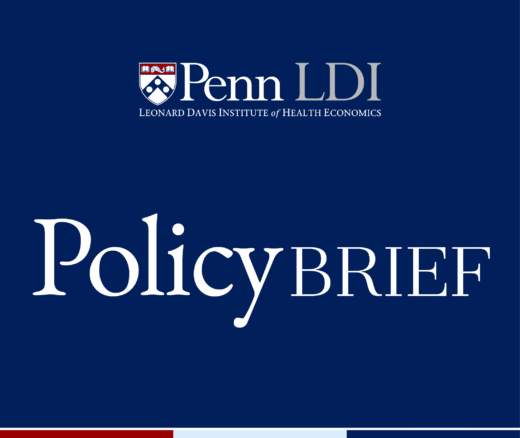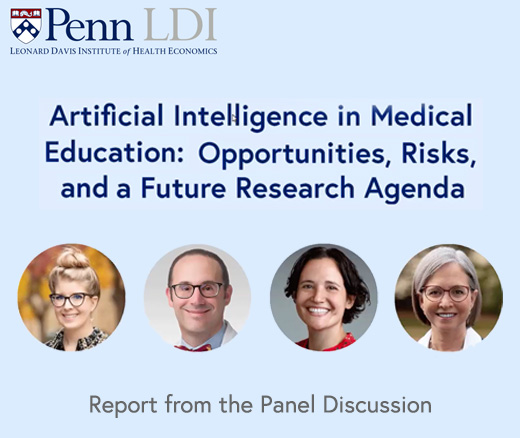
Reforming Long-Term Care Policy
Lessons from the Past, Imperatives for the Future
Blog Post

Digital health data are increasingly collected through non-clinical sources like smartphones, apps, and wearable devices—yet privacy protections for this type of data remain patchy at best.
While federal law tightly regulates health care data under the Health Insurance Portability and Accountability Act (HIPAA), consumer-generated digital data that may be health-related are subject to far fewer rules. In a 2020 study, a team of Penn LDI researchers found that Americans expressed the greatest trust in clinical organizations and public health institutions to use their digital health data responsibly—and far less confidence in technology companies and insurers.
However, in the wake of the COVID-19 pandemic, public mistrust in institutions to use digital health data has grown, alongside increasing political polarization over public health. These trends raise important questions about how consumer confidence has shifted.
In a national survey conducted in June 2022 and compared to the 2020 baseline, Penn LDI Senior Fellows Carolyn Cannuscio, Raina Merchant, David A. Asch, Former Associate Fellow Ravi Gupta, and Director of Policy David Grande, along with colleagues examined how Americans’ trust in 16 organizations—including public health agencies, technology firms, and clinics—has evolved after the COVID-19 pandemic, with particular attention to political ideology.
Overall, consumer confidence in most institutions remained relatively stable between 2020 and 2022, though there was a modest increase in confidence in the federal government. However, breaking down the results by political affiliation reveals striking divergence. The charts above present changes in confidence for liberal respondents (top) and conservative respondents (bottom) across three categories of organizations: Digital Technology Companies; Health Care Providers, Companies, and Organizations; and Government.
From 2020 to 2022, liberal respondents reported a 13 percentage-point increase in those who were very, moderately, or somewhat confident in the federal government’s responsible use of digital health data.
In contrast, conservative respondents expressed declining confidence in key public institutions. Confidence in the Centers for Disease Control and Prevention (CDC) dropped by 10 points, followed by the National Institutes of Health (NIH) and the federal government—reflecting deeper mistrust in federal agencies, perhaps in response to their central role in pandemic policy and the shift in political leadership after the 2020 election.
At the same time, liberals generally became less confident in several private-sector technology organizations, while conservatives reported modest increases in confidence in similar companies.
This growing polarization in digital trust suggests that Americans increasingly view data governance through a political lens. Confidence in public health institutions is now closely tied to ideology, potentially complicating efforts to pass bipartisan digital privacy legislation.
Understanding whom the public trusts—and why—is essential to crafting effective public health messaging and enacting meaningful privacy protections that resonate across the political spectrum.
The study, “Consumer Confidence in the Responsible Use of Digital Health Data After the COVID-19 Pandemic,” was published on February 26, 2025, in JAMA Network Open. Authors include Ravi Gupta, Meghana Sharma, Nandita Mitra, Carolyn C. Cannuscio, Raina M. Merchant, David A. Asch, and David Grande.


Lessons from the Past, Imperatives for the Future

A New Study of a Sample of Facilities Found Half Without Any Behavioral Health Staff

Physicians Were Paid About 10% Less for Visits Involving Black and Hispanic Patients, With Pediatric Gaps Reaching 15%, According to a First-of-Its-Kind LDI Analysis

A New Review Finds Hospital Mergers Raise Prices Without Improving Care, and Urges Regulators to Stop Accepting Quality Claims to Justify Consolidations

CMS’s Main Risk Adjustment Method Underestimates Rural Patients’ Health Risks, LDI Fellows Show, Potentially Reducing Access to Care in the Heartland

Experts at Penn LDI Panel Call for Rapid Training of Students and Faculty